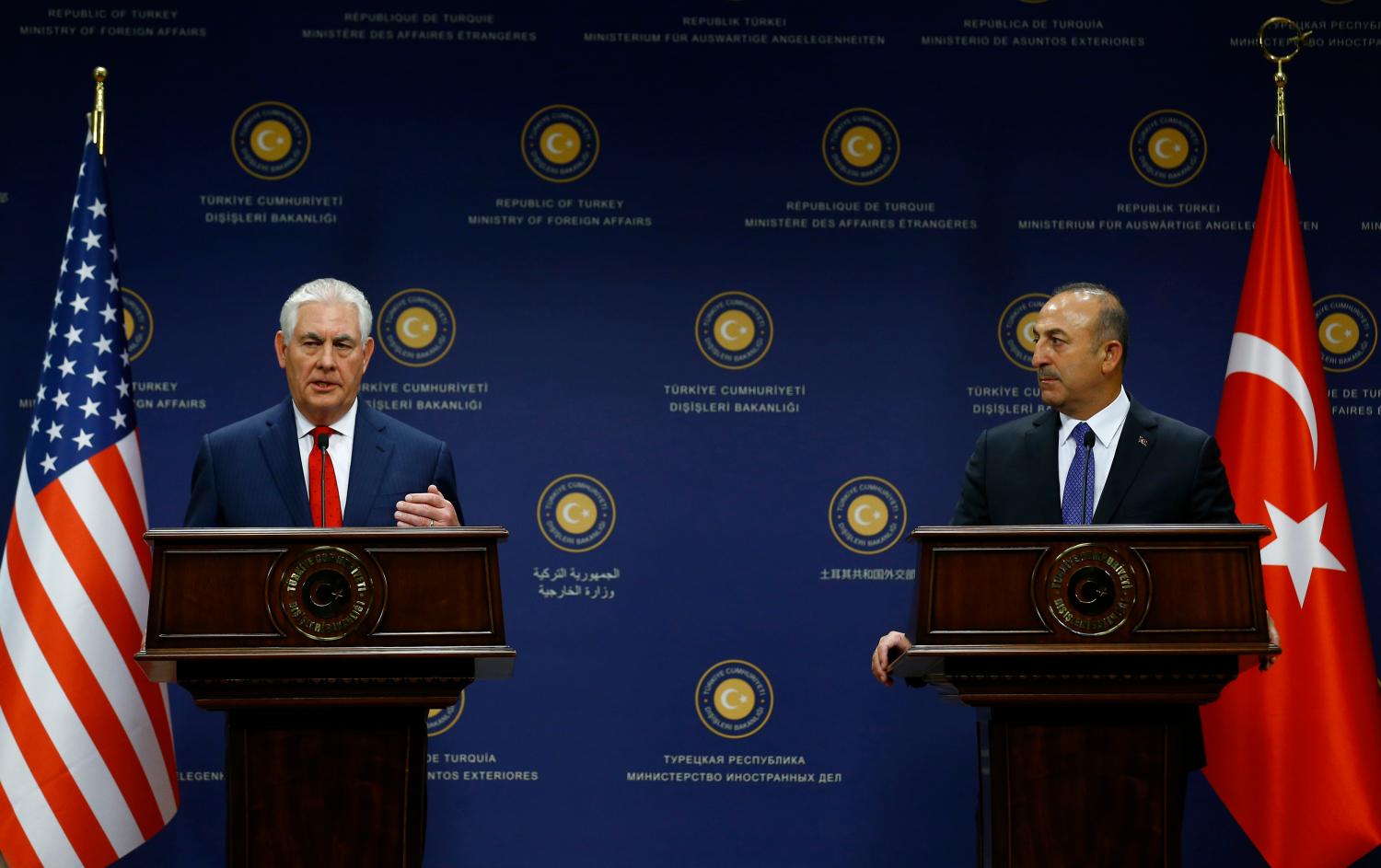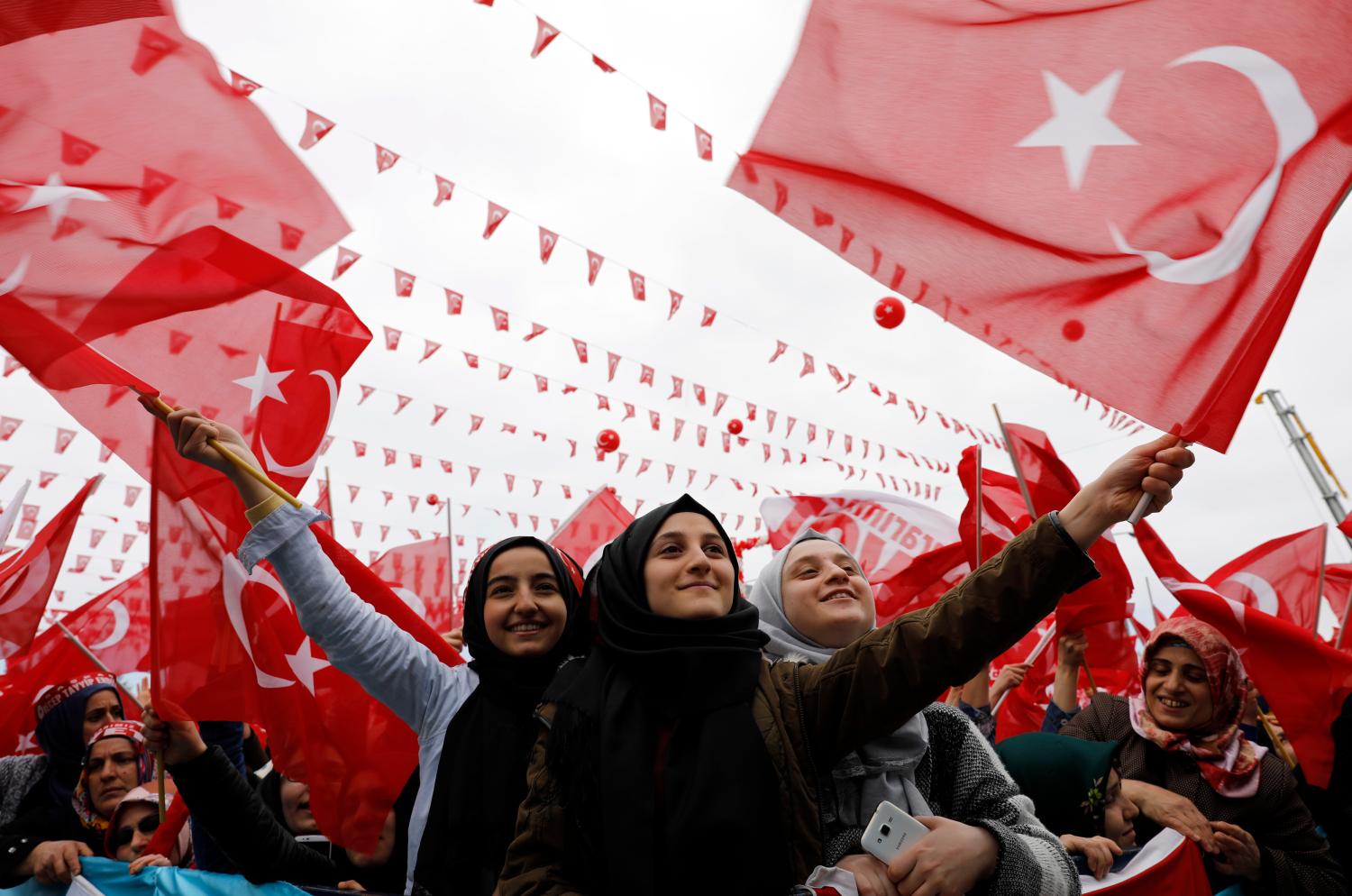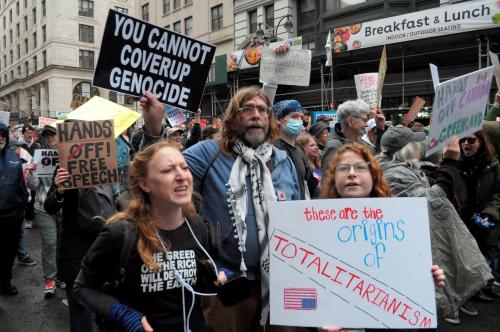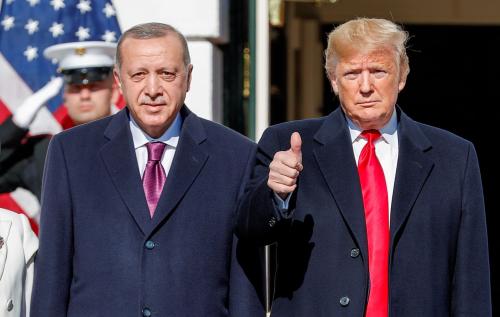
In “The United States and Turkey: Friends, Enemies, or Only Interests,” Aslı Aydıntaşbaş and Kemal Kirişci discuss the myriad of factors that have strained Washington’s relations with this long-standing NATO ally and offer various strategies to reboot ties in a period of uncertainty and chaos across the Middle East.
The authors’ central recommendations for moving U.S.-Turkey ties from a transactional relationship back to “the model partnership” are supported by a wealth of research on the state and trajectory of Turkish democracy, the nature of internal and external security concerns, challenges and opportunities in the Turkey-EU relationship, and more. Ten key policy recommendations are highlighted below and illuminated by links to additional background information and research.
Key Report Recommendations
1Continue to support civil society and independent institutions to preserve pluralism and democratic culture.
2Dialogue with the Turkish leadership about backsliding in its democracy.
3Remind the Turkish leadership that greater bilateral trade is contingent on successful, democratic reform.
4Encourage the upgrading of EU-Turkey customs union.
5Start an independent judicial inquiry on the issue of Gülen’s extradition.
6Push for PKK ceasefire inside Turkey and facilitate a return to the negotiating table.
7Postpone decision on arming Syrian Kurds for Raqqa offensive until after referendum.
8Leverage Turkey’s potential to be a template for better governance in the region.
9Consult Turkish officials on policies to curb Iranian nuclear capabilities.
10Engage Turkey in NATO-led efforts in the Mediterranean, such as monitoring illegal immigration and helping stabilize Libya.
Further Research
-
- Listen to Kemal Kirişci discuss the 2016 coup in Turkey and its implications for Turkey’s regional role, foreign policy, and its democracy.
-
- In an interview with the Council on Foreign Relations, Kirişci explained Turkey’s prospects after the coup attempt.
- In a podcast conversation with Senior Fellow Ted Piccone, Kirişci said:
“[Turkey’s] democracy was always a problematic one, interrupted by military coups, but also when there were no military coups the democracy itself had its own challenges with respect to the quality of human rights, the spectrum of democracy as well – the military always hung over this democracy like Damocles’ sword.” Listen to the full episode.
-
- Kirişci explained Recep Tayyip Erdoğan’s ambitions in an interview with the University of Montreal. Watch (French).
- In a July 2016 blog post, Kirişci outlined the geopolitics of Turkey’s failed coup. Separately, he also called for some sympathy for Turkey in the aftermath of Turkey’s coup attempt, pointing to the death toll as well as the less tangible—but real—national trauma.
- In an essay for the European Council on Foreign Relations, Aslı Aydıntaşbaş detailed the role of the Gülen movement in Turkey’s coup attempt.
- After Turkish police raided the office of the Cumhuriyet newspaper in October 2016, Kirişci argued that Turkey was getting worse before it got better. Aydıntaşbaş wrote in a commentary that Turkey was once a free society—but now the country, was rapidly destroying itself.
- Following an attack on a nightclub on New Year’s Eve, Kirişci lamented the ways in which Turkey’s security situation and democratic standards have rapidly deteriorated.
- At a Brookings event to discuss a new Turkey Project Paper, Kirişci and other experts discussed the Kurdish problem—both in Turkey and vis-à-vis the Syrian civil war.
- Ahead of a Turkish referendum on a set of constitutional changes in April 2017, Aydıntaşbaş outlined the choices and what they would mean for Turkey. Kirişci explained in a podcast episode that it would transfer significant power to President Erdoğan. After voters passed it, Kirişci wrote that the referendum results risked further polarization in the country; Aydıntaşbaş argued that the thin margin of victory presented numerous problems for Erdoğan, suggesting that all is not yet lost for Turkish democracy.
- At an event in October 2016, Kirişci and a panel of experts discussed efforts to reach a comprehensive settlement on Cyprus, pointing to a new Turkey Project Paper that offers new ideas for a path forward. Watch the event:
-
- Ahead of two high-level U.N. summits on the global refugee crisis, Kirişci wrote a blog post exploring Turkey’s perplexing, and noticed, absence from the events.
- Shortly after Donald Trump’s election in the United States, Kirişci—together with Onur Bülbül—explained what to expect from a Trump-Erdoğan relationship; Kirişci and Ali Tuygan later determined that U.S.-Turkey relations under Trump may hinge more on Turkey than on Trump.
- Amid concerns about state of the EU-Turkey relationship, Kirişci wrote in an op-ed that there are at least three reasons to be hopeful: trade relations, the prestige that comes with association with the EU, and security benefits.
- In anticipation of the much-watched first meeting between Trump and Erdoğan, Kirişci implored the two leaders: Don’t forget the Syrian refugees.
- In October 2017, when Turkey arrested U.S. consular employees and the United States responding with a visa ban, Aydıntaşbaş argued that Turkey-U.S. relations were locked in a downward spiral.
The Brookings Institution is committed to quality, independence, and impact.
We are supported by a diverse array of funders. In line with our values and policies, each Brookings publication represents the sole views of its author(s).






